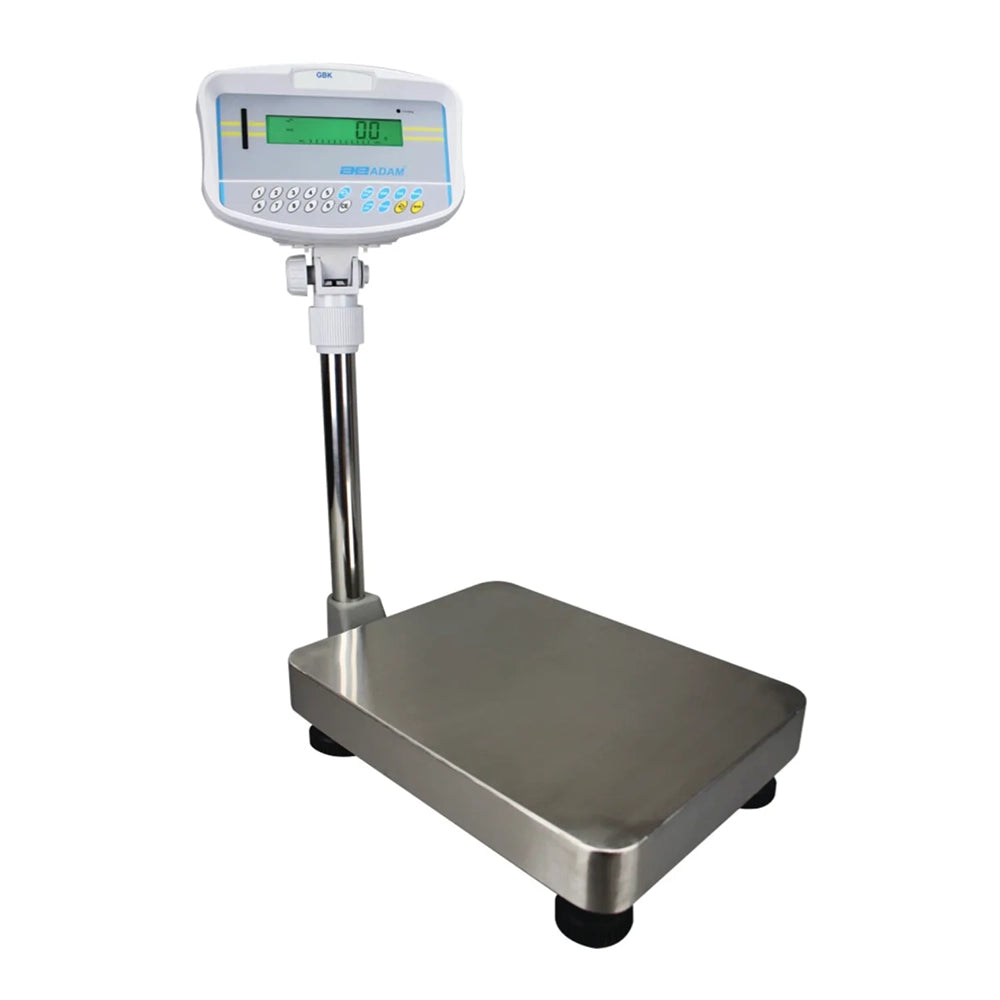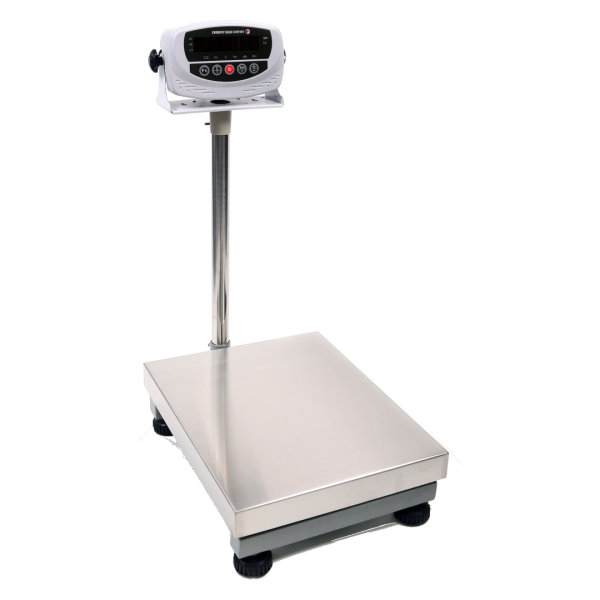Understanding the Different Types of Industrial Scales for Your Business
Understanding the Different Types of Industrial Scales for Your Business
Blog Article
Just How Industrial Scales Job: A Detailed Introduction for New Users
Comprehending the auto mechanics behind industrial ranges is important for new customers who desire to make sure accuracy in their dimensions. As we check out these components, one should consider just how these aspects connect to improve performance in varied industrial applications.
Essentials of Industrial Scales
Industrial scales are essential devices used throughout different fields, including production, logistics, and agriculture, to make certain precise weight dimensions of heavy lots. The essential concept behind industrial ranges involves the conversion of weight right into a quantifiable type that can be presented digitally or analogically. These ranges employ numerous mechanisms, such as tons cells or mechanical bars, to identify the weight of things put upon them.

In addition to their dimension capacities, industrial scales are made to hold up against severe settings, featuring durable building and construction that resists dirt, wetness, and heavy impacts. Calibration and maintenance are essential to ensure precision, as even minor discrepancies can result in considerable monetary effects. By understanding the basics of industrial scales, users can appreciate their significance in different commercial applications.
Sorts Of Industrial Scales
Numerous types of industrial ranges accommodate the diverse demands of different industries, each made to manage particular weighing jobs with precision and integrity. Among one of the most common kinds are floor ranges, which are perfect for weighing cumbersome and heavy products. These scales normally feature huge platforms and can fit palletized goods, making them necessary in storage facilities and delivery facilities.
An additional type is bench scales, which are usually used for smaller sized things in manufacturing and retail settings. They give precise dimensions for items that call for precision, such as chemicals or parts in production line (Industrial Scales). For mobile procedures, mobile ranges offer versatility and simplicity of transport, suitable for fieldwork or momentary installations
In applications calling for high-capacity measurements, such as wholesale product handling, crane scales and load cells are utilized. These scales can gauge lots suspended from a crane or other training apparatus, making sure security and accuracy throughout operations. Additionally, specialized ranges like checkweighers are used in manufacturing lines to preserve quality assurance by making sure that products satisfy weight specifications. Each sort of industrial range plays a vital function in improving functional performance and precision across numerous industries.
How Evaluating Devices Job
Considering systems are essential components that enable exact dimension of mass throughout various industrial ranges. These devices utilize different principles of physics and design to supply precise weight analyses, necessary for stock management, quality assurance, and compliance with regulatory standards.
One common kind of considering system is the lots cell, which operates the concept of stress evaluates. When a tons is applied, the load cell flaws a little, generating an electrical signal proportional to the weight. This signal is discover this then converted into a readable weight measurement by the range's electronics.
An additional widely utilized device is the mechanical balance, which uses a system of weights and bars. Industrial Scales. This technique relies on the principle of stability, where the weight of the things being gauged is stabilized versus known weights, enabling for direct measurement
Furthermore, pneumatic and hydraulic scales utilize liquid dynamics concepts to determine weight. These systems use the stress put in by a load to establish weight, supplying high accuracy for large loads.
Appropriate Use Methods
When making use of industrial ranges, sticking to correct usage strategies is critical for guaranteeing accurate dimensions and keeping equipment stability. It is essential to pick the proper range for your certain application, as scales differ in ability and precision.
Prior to evaluating, make certain that the scale is put on a steady, level surface area totally free from disruptions or vibrations. This will aid to minimize errors triggered by outside aspects. Furthermore, adjust the range according to the supplier's specs prior to utilize, making certain that it is operating correctly.
When placing things on the scale, disperse the weight uniformly to avoid tipping or harming the devices. Constantly allow the scale to support prior to taping the weight, as fluctuations may take place throughout first Your Domain Name positioning. For bulk products, utilize containers that are ideal for the scale dimension to prevent overloading.
Moreover, prevent putting extremely warm or cool items directly on the range, as temperature variations can influence precision. Maintain the weighing system clean and totally free of debris to prevent contamination and make certain reliable outcomes. By adhering to these strategies, customers can make best use of the efficiency and longevity of their commercial ranges.
Maintenance and Calibration Tips
Guaranteeing the longevity and precision of commercial scales calls for attentive upkeep and normal calibration. A preventative upkeep routine is crucial; it needs to include routine assessments to determine wear and tear, specifically on tons cells and other delicate elements. Frequently cleaning the range's surface area and making sure the surrounding area is without particles will help preserve its integrity and efficiency.
Calibration is equally vital and must be carried out at normal intervals you could try these out or whenever the range experiences considerable adjustments in temperature, humidity, or physical variation. Use qualified calibration weights that are deducible to national requirements for precision. Paper each calibration session diligently to track efficiency with time and identify any type of fads or repeating problems.
Train all drivers on appropriate scale use and upkeep protocols to ensure constant performance and precision. By sticking to these upkeep and calibration pointers, individuals can improve the reliability of their industrial ranges, making sure ideal operation in any kind of setting.
Final Thought

Comprehending the technicians behind industrial ranges is important for new users who desire to make certain precision in their measurements.Industrial ranges are necessary tools used across various markets, consisting of manufacturing, logistics, and farming, to make sure accurate weight dimensions of heavy tons. The essential concept behind industrial scales entails the conversion of weight right into a measurable kind that can be displayed electronically or analogically. By comprehending the fundamentals of commercial scales, customers can value their significance in various commercial applications.
In conclusion, comprehending the operation and upkeep of commercial ranges is crucial for ensuring accurate weight measurements in various applications. (Industrial Scales)
Report this page